Christian McBride compares the bass player's role to that of a baseball catcher—the only player with a full view of the field, calling the shots while anchoring the action. It's an apt metaphor for the multi-Grammy Award winner, who has become one of jazz's most vital navigators, steering the music forward while keeping a watchful eye on its traditions. McBride embodies both the foundation and future of the music through—just to mention a sampling of his many efforts—leading his latest ensemble, Ursa Major, directing the Newport Jazz Festival, or mentoring rising talents through Jazz House Kids.
This multilayered perspective stems from his journey through jazz education's evolving landscape. Growing up in Philadelphia, McBride benefited from formal training at institutions like the Settlement Music School and organic mentorship from legends like Ray Brown. His latest mission is cultivating the next generation of players, applying this dual understanding. McBride recognizes that while jazz has finally gained its deserved place in academic institutions, the music's essence still lives in moments of creative discomfort and spontaneous discovery.
Perhaps most telling is McBride's approach to his instrument. Despite being celebrated for his virtuosic facility, he takes particular pride in being what he calls "a carpenter"—the steady hand who, along with the drummer, nails down the foundation of the music. While still innovating and pushing jazz forward, this commitment to fundamentals reflects his larger philosophy about jazz's evolution: progress built on deep understanding rather than revolution for its own sake.
Lawrence Peryer spoke to Christian McBride about these topics, as well as their mutual fawning over the Frank Sinatra-Count Basie collaborations, in a recent episode of the Spotlight On podcast. The excerpted conversation is presented below, lightly edited for length and clarity.
A Full View of the Diamond
Lawrence Peryer: Are there any lofty analogies we could draw between a baseball manager and a band leader? You know, assembling the roster, getting the people in the right positions?
Christian McBride: You could draw parallels between being a baseball manager or even a player. I always like to say that the bass player is the catcher because the catcher is the only player on the field with a full view of the diamond and control of what's going on. The catcher calls the pitches. He gets to call the infield and outfield position, has to throw the runner out if they're stealing second, and has to block the plate if they're coming home. (Well, he actually can't do that anymore.)
So, the catcher is very much in control, like the navigator of what goes on on the field, and that's the same thing with a bass player. Drummers will argue that it's them, but drummers can only direct from a rhythm standpoint. Bass players can direct from both a rhythmic and harmonic standpoint.
Lawrence: As a listener or somebody just wading into the dynamics of a band, I would have thought it was the drummer, but I've heard many musicians say they lock in with the bass—they listen for the bass.
Christian: Drums can only do one thing. Even with an awesome drummer, a large dynamic will be missing if the bass player drops out. Whereas if the drums lay out, you might get a lot of energy that's gone, but the song won't fall apart—if you have a good bass player, that is.
Lawrence: I'd like to know about your record collection. Were you always a collector, or was that something you came into as you made your way in life? Tell me about that affliction.
Christian: I don't think it was an affliction for anyone born before 1990 or listening to music in the seventies and eighties. This is what we know. Even when the CD era came around, I never got rid of my vinyl. I love vinyl. I love the way it sounds. I love putting it on, reading the liner notes, reading the credits, and all of that stuff.
Lawrence: What are some of the ones you return to? Do you have a set of go-tos?
Christian: Not particularly. I mean, I have so many here. I try to randomly put on what's close and enjoy the process. I go back to many Columbia records from the late fifties to the sixties. The 30th Street Recording Studio, the Columbia Recording Studios, and everything made there sounds incredible. So the sound is awesome, as are those Thelonious Monk records, Dave Brubeck, Charles Mingus, and even Simon and Garfunkel. There's something about those Columbia records from the fifties and sixties.
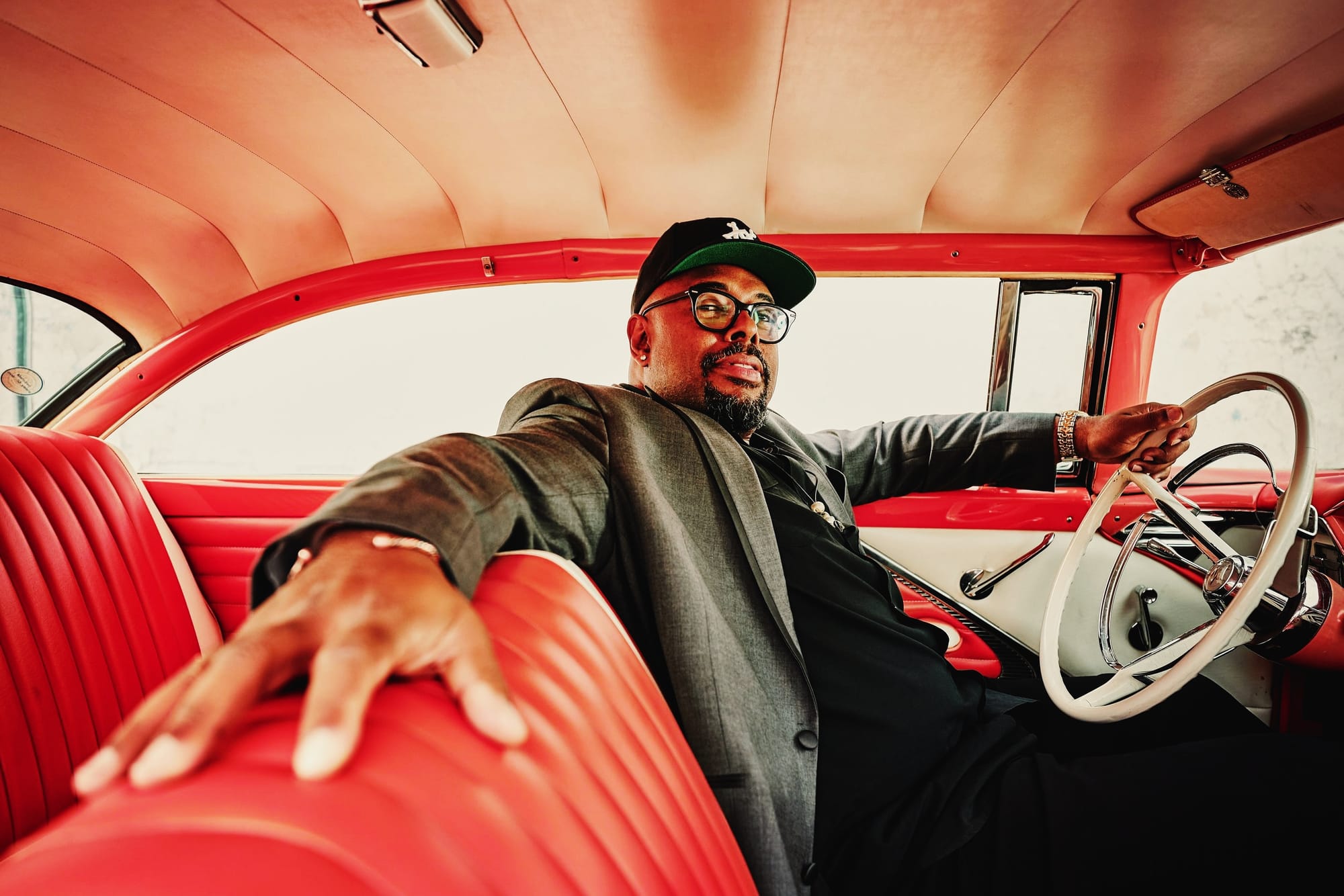
The Fight for Legitimacy
Lawrence: Given the diversity of settings you find yourself in and the diversity of work you do, is there a Christian McBride bucket list? Is there a genre combination or an ensemble, or what aspirations are left for you in terms of the work you'd like to do?
Christian: My aspirations aren't concerned with a bucket list. It's serving the bucket list of these young musicians on the scene. I've already had a chance to play with almost everyone I've ever dreamt of playing with. They're all gone now—all your Freddie Hubbards, Wayne Shorters, Joe Hendersons, McCoy Tyners, and Bobby Hutchersons. I got to spend twenty-six years with Chick Corea. So, I'm not interested in living out any more of my dreams. I've lived them. I played with James Brown. What else could I want?
So, my goal now is to assemble and nurture these younger musicians coming up on the scene. That means people like members of my new group, Ursa Major. That means people on my label, like Jennifer Hartswick and Dan Wilson, the group East Axis. I want to help boost the profile of other musicians now.
Lawrence: When working with a younger crew, do you think about composition differently? Are you trying to stump them or push them?
Christian: Well, composition and pushing them might be different things, but the goal is simply to give them opportunities wherever possible. For example, putting together a group playing festival, like I did at Newport with the Newport at 70 All-Star Band, which was full of younger musicians. There are several ways that you can help younger musicians out.
Lawrence: Do you perceive any tension between more formal education and the musicians working day in and day out? I hear from many cats that they often have to unlearn things in young players they learned in school.
Christian: There's tension in all that because even before you had jazz education in a set form, in a true university platform, if you played with Art Blakey's band, you got to play with Miles Davis's band. You wouldn't play in Miles Davis's band if you didn't learn in Art Blakey's band.
So, the idea that somehow learning what you learn in school will help you in the real world depends on the player. It's not the school's fault that you took them too literally. They are there to teach you the basic ABCs you need to learn as tools to help you create your sound.
The school is not responsible for helping you create your sound. That's up to you. So, I have no issues with what happens in jazz education. But, if you're a young musician going to these schools, it would do you well to look at what the school offers and who the teachers are. Then you go and deal with what they offer you.
If you want to be more of a free player, maybe more of a jazz adjacent slash fusion player, you probably don't want to go to Juilliard. But if you want to learn how to swing and learn some history, like the basic history of the music, that might be where you want to go. If you want to get into some real abstract stuff, you might go to New School or Berklee. If you want to play in a tip-top big band, you might go to UNT. You have to be careful where you go.
Lawrence: From talking to many players, it looks like there are more choices today than there were a generation or two ago. Back then, many programs were just starting to have jazz studies or were hostile to their students improvising.
Christian: Which is why there have been more and more places like Jazz House Kids, which my wife and I run here in Montclair, New Jersey, or the Berklee Jazz Center in Berkeley, California, or Jazz St. Louis, which kind of serves all different types of communities and ages. For so many years, jazz fought for legitimacy at learning institutions. Jazz was never part of the conversation until maybe the 1960s. We fought for that legitimacy to be taught as America's true indigenous art form.
Now that it's being taught, it's going through stages. The first stage was jazz, which needed to be taught in school as serious music. People need to understand how serious this music is. Okay, you fight for it to become a part of a basic American curriculum. That has happened, for the most part.
Then, what they were teaching became an issue. And then we got past that and said, "Who are the people teaching?" Then we got past that. So now you have a lot of jazz programs where you have the musicians who played on records that we love doing the teaching.
Failure is a Great Thing
Lawrence: Let's say you're the Dean of Music somewhere, and they're asking you to revisit the jazz curriculum. What unexpected or unorthodox thing would you love to see students exposed to?
Christian: For me, as a musician and person, you learn the most when uncomfortable. I would make students play a song that they didn't know. We would hold an open jam session, I would call a song, and I'd be like, "Hey, come play the song." "I don't know it." "Well, you're gonna learn it."
I would make them play in time signatures that they're uncomfortable with. I would make them play songs in keys that they never played yet. Because that's the only way you learn. You spend time learning things slowly or at your own pace, then apply what you learn to whatever situation you're in. But I've always found that when I'm exposed, I must dig deep and say, "Uh oh, I don't know what I'm doing." Sometimes, failure is a great thing within reason.
Lawrence: Is what you're describing the traditional role of the blowing or jam sessions? I think about the loft scene and the idea of not working off a piece of sheet music on a stand but just going to play and learn the changes. Nobody will sit down and show you—you just do it.
Christian: It depends. There were certainly instances at jam sessions where that was the case. Maybe other times, not so much. But all of those musicians from the swing era never had schools. What they did was they sat under the feet of someone who became a mentor to them. Like Sonny Rollins, he had people like Coleman Hawkins with whom he could hang out. Johnny Griffin could hang out with Ben Webster, and Barry Harris could hang out with Thelonious Monk. Before schools came around, mentoring and apprenticeship were a big part of history.
There was also an apprenticeship mentorship, but you had to pay tuition for that. That's cool because your mentor gets paid, which is not a bad thing. Fortunately, the mentor I paid for at Juilliard, Homer Mensch, was a classical bassist, so I learned a lot from him. However, I was fortunate that Ray Brown liked how I played. He chose me, saying, "I like you, kid. You're going to be my guy." I was able to have Ray Brown as a mentor without paying him.
But the flip side was being around Ray Brown. It wasn't a controlled atmosphere where we had one hour for a lesson and were told, "Hey, I want you to practice this and come back and practice and play it for me the way I told you." It was like in a professional setting: "Come on, kid, let's do this."
Even if I had gone to school for jazz, I'm sure what I learned in school may not have applied to what I learned from Ray Brown. That's what I'm saying to younger musicians or anybody who might complain or is cynical about the educational process: It's up to you, the student, and the musician.
Lawrence: Did you ever come to learn or know what Ray Brown saw in you or liked in your playing?
Christian: I probably tried to play like him. [laughter] That's not true because I think I was a Ron Carter man before I met Ray Brown. I mean, I'm still a Ron Carter man—who isn't? We all love Ron Carter. Ron Carter and Paul Chambers were my two main guys. And I would say Ray Brown was a very close third. But once I met Ray and got to know and be around him, he quickly went to number one.
Ray saw an era where jazz, particularly bass playing, became more about chops, melodicism, and extended technique, as we call it. And I think people like Ray, Al McKibbon, Milt Hinton, a lot of those old school players, they thought, "Man, all these upright bass players got all these chops. They're playing way up on the fingerboard. It's impressive, but nobody's walking that hard 4/4 swinging bass line anymore."
So I think Ray liked that not just me, but people like Robert Hurst, Reginald Veal, Charnett Moffett, Ben Wolfe—we were sort of throwbacks because we got great joy in simply playing time.
Lawrence: Where'd that come from for you? Was it growing up listening to funk?
Christian: Yes, that's the quick, easy answer. Anybody who grew up listening to funk, R&B, soul—and my father was playing with Mongo Santamaria. As impressive as it was to see bass players with chops, you quickly learn at a young age that's not why people call you for a gig. They call you to play the bass line. They call you to nail the floor down with the drummer. You're a carpenter.
Lawrence: You're the engine room.
Christian: That's right. You're the engine room or the boiler room.
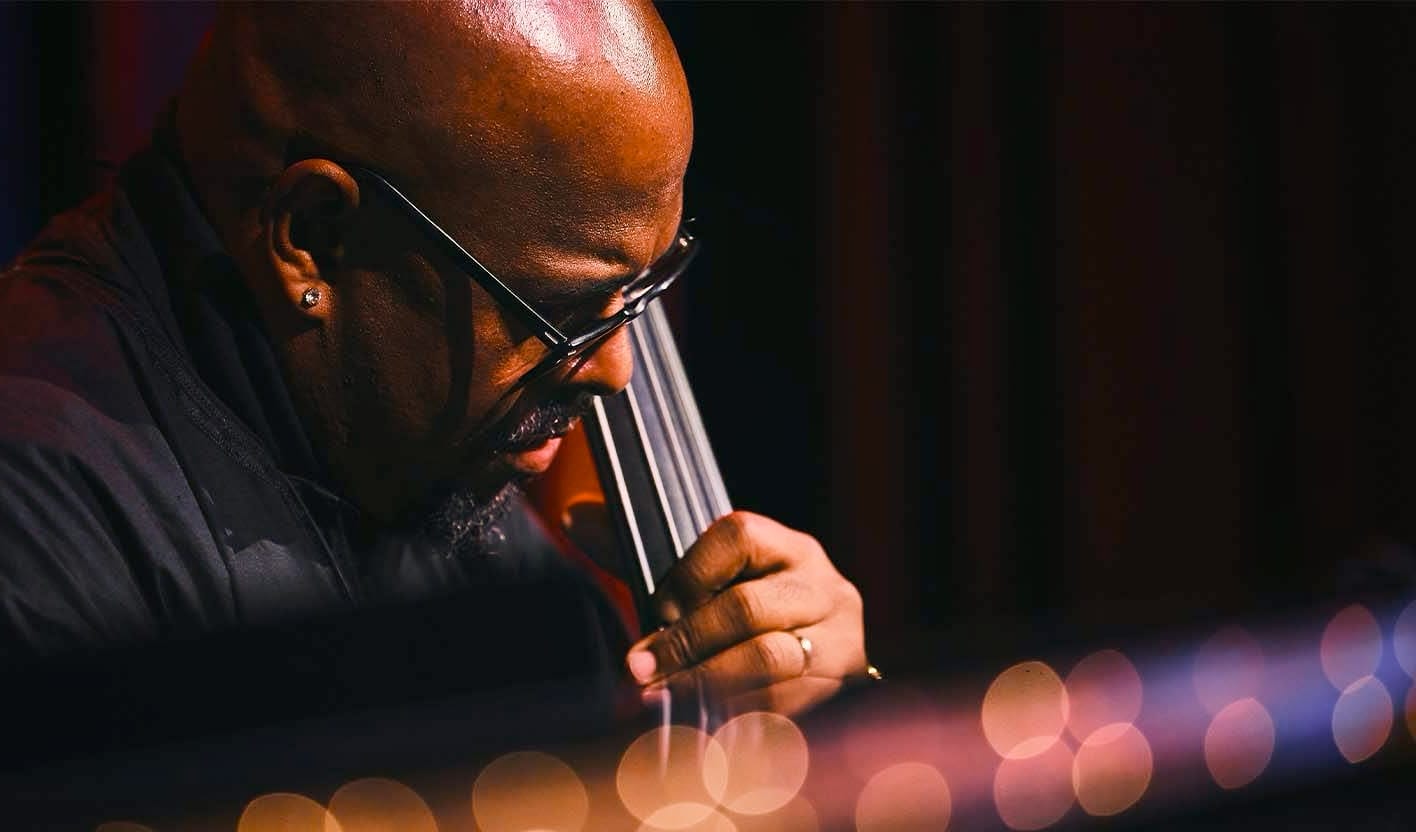
Past the Back of Book
Lawrence: If you don't mind, can you explain the term 'extended technique'?
Christian: Sure. When taking bass lessons, you're taught basic elementary things like hand position, where to put your right hand, where to put your left hand, what fingers you use to play certain scales, how to use the bow, and different pizzicato methods. If you are taking both jazz and classical lessons, there is a certain repertoire that you have to learn.
What would be called extended technique is things that are past the back of book, so to speak—pull-offs, false harmonics, like you see certain musicians know how to play with three fingers, the flamenco technique. That's not a standard bass method. People like Renaud Garcia-Fons play like that. You see Stanley Clarke playing like that. That's not something you learn in the book; they won't teach you that. So, by extended technique, you mean the flashy stuff.
Lawrence: Are people inventing new extended technique?
Christian: People are always creating new ones. I see some bass players now who have so many chops that I can't keep up anymore. From the mid-seventies through the nineties, or at least for a good twenty-five-year stretch, slapping and popping had become so standard on the electric bass that it was almost strange to hear someone play real basic fingerstyle anymore.
And then you had somebody like Pino Palladino come around, who started making records with D'Angelo and playing with The Who. He didn't do all that popping and slapping, and it was awesome because those records, particularly records with D'Angelo, became so popular. It was like this back-to-the-future moment—all these electric bass players were like, "Wow, we forgot how good the electric bass sounds when we're just playing with the fingers and not the thumb."
But in the middle of all that, I remember watching Matthew Garrison playing with John McLaughlin, and he was so fast, I thought, you can't play like that just with fingers. I watched him play, and he was using the flamenco technique. I said, "Well, I'm not going to try that."
Scratching Those Musical Itches
Lawrence: I've been looking at your upcoming schedule, and man, you're packed between now and the end of the year and well into next year. I want to talk about some of the diverse projects you're working on, but is Ursa Major your main outlet right now?
Christian: Yes. Ursa Major has been my main touring unit for all of this year. We started playing together in 2022 and will record an album in January, hopefully out by the end of 2025.
Lawrence: Do you see this as something that will evolve over decades, or will it be the school of Christian McBride?
Christian: Someone suggested that's probably what it will be, but I didn't have anything specific in mind. I get these musical itches, and I need to scratch them all. I had all these sorts of 'theme bands,' and I wanted a band that was not a theme band. I just wanted a band that could do anything, everything, all things.
I kept my antenna up for a long time. I started toying with this combination, but not these particular players; I called them auditions in my brain. Eventually, I started jamming with some younger musicians to put a band together. After a couple of years, this group, which included Nicole Glover, Ely Perlman, Mike King, and Savannah Harris, became the band.
Lawrence: I asked you what Ray Brown saw in you. What do you look for?
Christian: When I started putting this particular band together, I kept my ears open for younger musicians with a certain energy. I don't think I'm looking for anything specific. I mean, there's a certain language, there's a certain vocabulary that you know works for your ideas.
Savannah was probably the most important one because, as a bass player, you got to build your band around your drummer. For every band I've ever had, the first question is, "Who will be the drummer?" Many things go into that, like, "What's their sound like? What's the setup that they use? Is it an 18-inch bass drum? Is it a 20-inch bass drum? Is it too high? Is it too low? Is it too ringy? Is it too dead?"
I pay attention to how drummers tune their drums, but depending on the band's sound, that sound can vary. With the New Jawn, Nasheet Waits's playing might not be the drummer I would pick for Ursa Major, and vice versa. I wanted Ursa Major to be sort of a 'hybrid band'—a band that could go in and out, acoustic, electric. Free, funk, swinging, whatever it is—to turn on a dime to do many different things. I need a drum sound that fits all those things without being aesthetically incorrect. The way Savannah tunes her drums fits all those things.
Most importantly, her feel is amazing. The first time we played together—and I think I knew within four bars—I called a song of mine called "The Wizard of Montero," a fast-tempo swing song. And I mean, as soon as we started playing time together, I thought, "We're good. We are totally good." I made no adjustments to play with her. The tempo felt so nice and comfortable.
On keyboards, I found that a lot of modernists don't necessarily know the language of Art Tatum, Bud Powell, and Thelonious Monk. But they sure know a lot of Robert Glasper or Brad Mehldau—they know any of these young cats coming up.
So, Ely Perlman was a student of mine at Aspen for the Aspen summer program, and he just blew me away. I mean, his time is incredible. He can get around the guitar with such fluidity—his technique, his ideas—and he's a total sweetheart. It always helps when you're not full of drama. And Nicole's been one of the hottest saxophone players in jazz for the last few years. She was an easy call. I heard her play and all that fire coming out of her horn. I thought, "Okay, this is my group of superheroes."
Listen to the Vocalists
Lawrence: I hope you'll indulge me in this question: in your role as artistic director at Newport, if you could transcend space and time and pick from everybody, the whole pantheon, give me your three-night headliners.
Christian: That's too hard. Well, you know me—James Brown would be a closer on one of those three nights. Sinatra with the Basie band would be closer to a night. And Miles Davis on the third night.
Lawrence: Which band? Come on, you can't just say Miles Davis.
Christian: Sure, I'm saying Miles Davis. [laughter]
Lawrence: I'll tell you, I'll take any chance to talk about that first Reprise record of Sinatra-Basie, along with "Pennies from Heaven" and "Please Be Kind." Few things in life are better than that record.
Christian: When I started spending time around Ray Brown, I was on a major quest to learn standards. It was confusing because I didn't know where to turn. If you ask ten musicians, "Okay, I want to learn the ultimate version of 'My Funny Valentine'—which should I learn?" You'll get ten different answers. Everyone I asked would recommend another instrumentalist—"Listen to the Charlie Parker version," you know. "Listen to the Miles Davis version, the Dexter Gordon version." There will always be some version that they would tell you to listen to.
Hanging around Ray Brown put me in focus because he said you need to listen to vocalists. With vocalists, you're going to learn the storyline of the song. You're going to learn what the song means. He said this specifically with Frank Sinatra, Ella Fitzgerald, and Nat King Cole. Those three, he said, always respected what the composer wrote, and they're never going to over-embellish the melody where you don't know what the melody is. And with Frank Sinatra, I asked him where I should start, and he said get any of the records he made with the Basie band.
Keep up to date with Christian McBride at christianmcbride.com or follow him on Instagram, Facebook, and YouTube. Listen to Christian McBride's latest music on Qobuz, Bandcamp, or your streaming platform of choice.
Check out more like this:
 The TonearmLawrence Peryer
The TonearmLawrence Peryer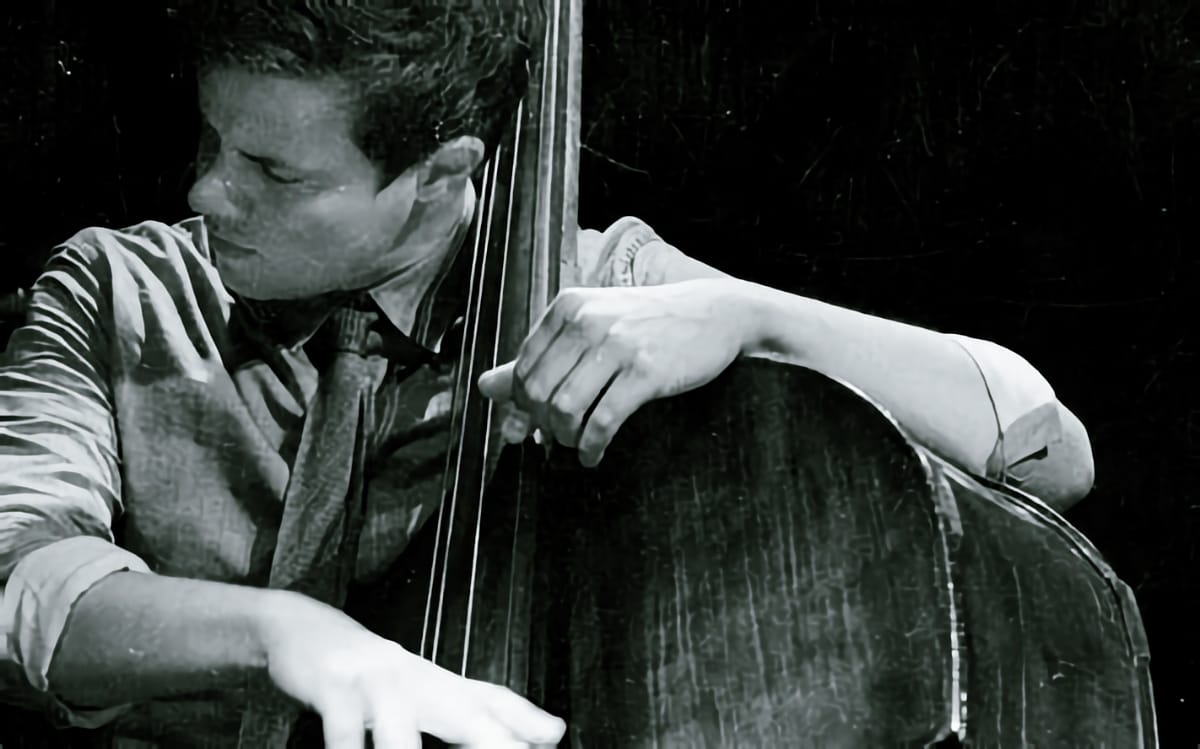
 The TonearmLawrence Peryer
The TonearmLawrence Peryer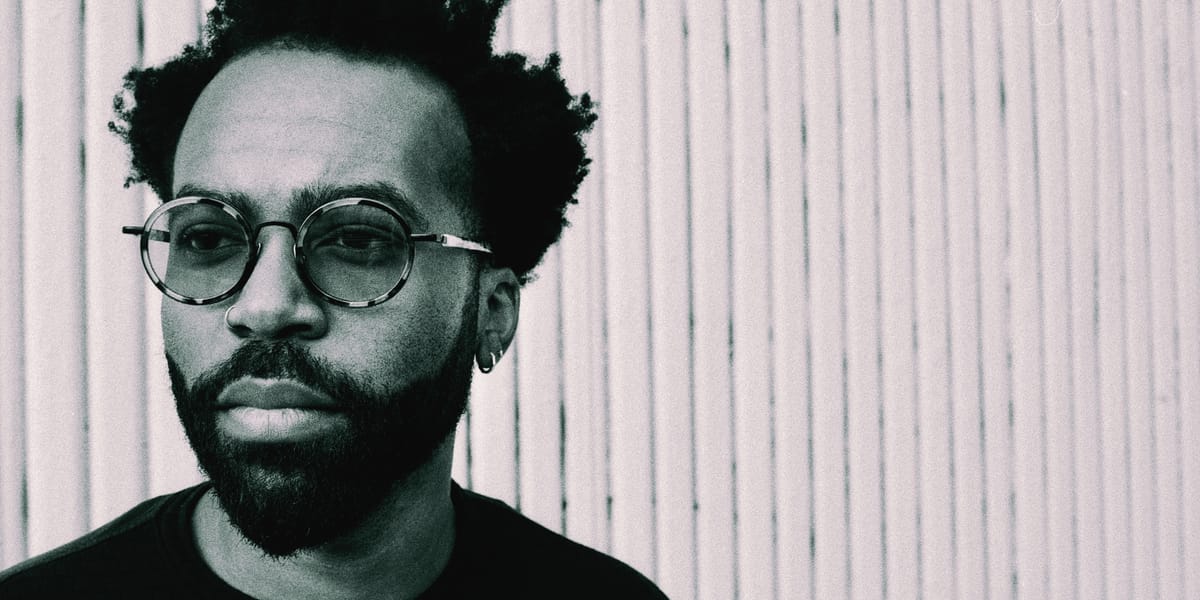


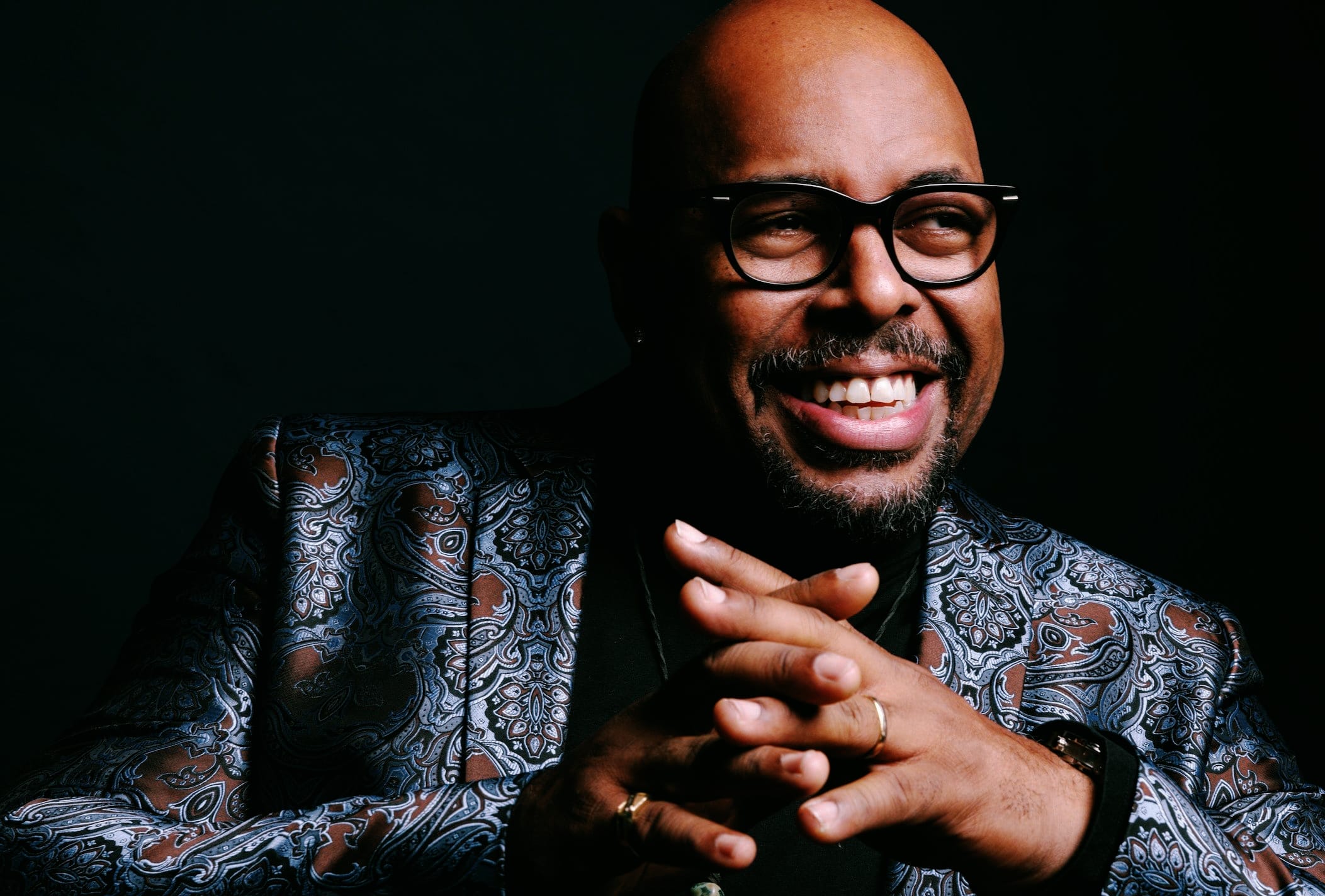



Comments